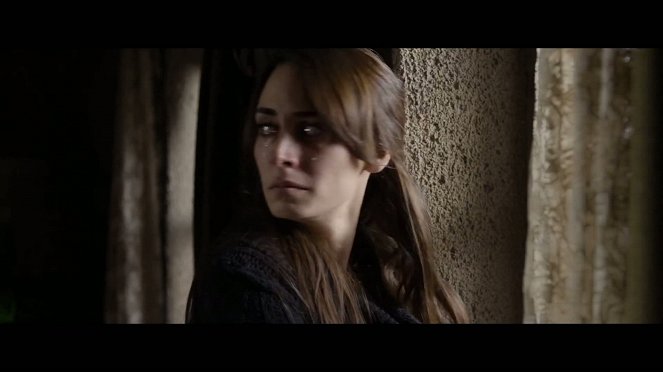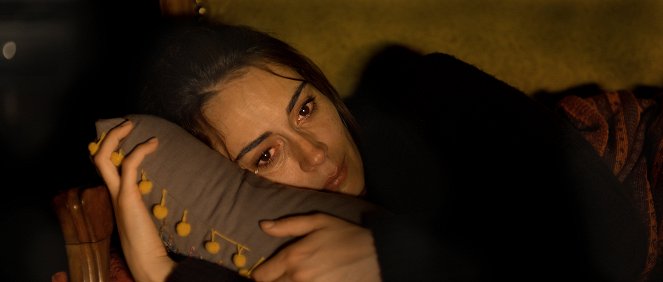Regie:
Nuri Bilge CeylanKamera:
Gökhan TiryakiBesetzung:
Haluk Bilginer, Melisa Sözen, Demet Akbağ, Ayberk Pekcan, Serhat Kılıç, Nejat Isler, Tamer Levent, Nadir Sarıbacak, Mehmet Ali Nuroğlu, Gülsen Özbakan (mehr)Streaming (1)
Inhalte(1)
In den imposanten Bergen Kappadokiens betreibt der ehemalige Schauspieler Aydin ein Hotel, in dem er mit seiner deutlich jüngeren Frau Nihal und seiner gerade geschiedenen Schwester Necla wohnt. Während die Kälte des Winters unaufhaltsam in die bescheidenen Unterkünfte dringt, wachsen die Spannungen zwischen Aydin und seinem Umfeld. In den Konfrontationen mit den Dorfbewohnern geht es um Geld und Ehre, die eher theoretischen Dispute mit seiner Schwester drehen sich um philosophische Fragen und der Konflikt mit seiner Frau wächst zu einer fundamentalen Auseinandersetzung über Liebes- und Lebensentwürfe. So offenbart sich Aydin zunehmend als selbstgefälliger Zyniker, der die Menschen um sich herum klein zu halten versucht und ohne Skrupel demütigt, sobald er seine Stellung als Patriarch gefährdet sieht. (Weltkino)
(mehr)Videos (2)
Kritiken (6)
Ceylans spiritueller Pate Tschechow kommt nach Anatoliens, wobei das Ergebnis eine reduzierte Magie der fließenden Zeit und leider auch eine geschwächte Kraft der Filmsprache ist. In partiellen Momenten ist das ganze packend schläfrig, wie eingefroren und bodenständig, ein andermal jedoch nur allzu wörtlich und mit Blick auf die eigene Beredsamkeit. Für Tschechow ist jedes Wort wichtig, wohingegen die Wörter bei Ceylan manchmal einfach daherströmen. Auch dort, wo der Film ohne sie auskommen würde.
()
It is true that to watch a Turkish movie, which is over 3 hours long, takes a lot of persuasion. It’s similar to when you hear about a book, which is supposedly good but has one thousand pages. It also takes you a long time to actually start reading it. But once you start reading, you are satisfied and enjoy a page after a page. Winter Sleep starts with very nice shots of Central Turkey, which clear any doubts you might’ve had, and then sets off in a completely human, honest and realistic way to tell the problems of a few characters that you can’t help but be interested in. Mostly because everything feels so natural as if they were your own neighbors. And you feel that way even though there are cultural differences between us Czechs and Turkish people. But not that big that they couldn’t be a part of Europe. So, it is a particularly good and interesting drama, and if you don’t get put off by the running time, you will definitely be satisfied.
()
I’m quite struggling with this film, and I think I will struggle for some time still. It’s a very nicely shot drama with convincing performances, and smart, but I’m afraid it doesn’t manage to say enough for it to have that brutal 196 minute run. I feel that Nuri Bilge Ceylan suffers from the same self-love and self-loathing as the character he speaks about. But how actually should and can an intellectual film be when speaking about the bubbles intellectuals build around themselves so they can be happy with themselves? Just and only like this one. The closing monologue felt unconvincing and unjustified, maybe is thought as another form of the protagonist’s self-deception, but shot in a way that gave the impression that he actually means it. Blue Is the Warmest Color, winner in last year’s Cannes, is almost as long, but I felt that every shot is in place and I that I wouldn’t leave anything out, but in Winter Sleep I felt that it would be a much better film if it was shorter. In any case, it’s perfect for the snobs at Cannes, even in this form.
()
It would be nice if the film wasn't so terribly long. Yet it was so terribly long, and during the entire three hours and a bit I just couldn't enjoy the acting, which is excellent, but also the directing, cinematography, and editing, which were great, and it's clear that Turkish cinema has made huge strides.
()
“The road to hell is paved with good intentions.” Like reading a thick (Russian) novel. The characters are rendered in detail, the relationships between them are complex and the conflicts are built very slowly (almost from the ground up). From the surprising breaking of a window, it is clear that a major turn of events is coming, either a physical clash or a psychological breakdown. Ceylan manages to maintain the unsettling feeling that something is going to happen throughout the film, which consistently avoids forced dramatic shortcuts, pigeonholing of the characters and simplistic clichés. The greater the effort you put into understanding the ambivalent actions of the protagonists, the more powerful the catharsis during the flawlessly anti-climactic ending will be. Like everything in Winter Sleep, the subsidence of tension is not obvious. Some perhaps found the meaning of existence, while others have clearly lost it. Not only Aydin, the “useless man” who is unable to wake up from his winter sleep, but also the other characters are multi-layered in a “literary” way and through their words and actions variously enrich the central motif of self-deception, wearing masks and everyday acting at the level of interpersonal and interclass relationships (the most esteemed of playwrights is referenced through a quote from Richard III, a poster for Antony and Cleopatra in Aydin’s study and the name of the hotel – Othello). Even though the film is predominantly composed of long dialogue scenes and multiple characters, it isn’t overly wordy. Each of the discussions has a different dynamic (determined not only by the sharpness of the verbal exchanges, but also by the positioning of the characters in the given space and whether they are shot separately, or rather each individually), a different source of tension arising from what we have learned so far about the people doing the talking from their verbalised thoughts, as well as from the no less expressive mis-en-scène. As he did in Once Upon a Time in Anatolia, this time (again in Anatolia) Gökhan Tiryaki shoots the inhospitable and – like the relationships between the characters – increasingly cold landscape as an extension of the characters’ inner worlds, though he pays more attention to the actors’ faces, which most comprehensibly convey to us the development of one character’s attitude toward another in the given scene and in the film as a whole. Thanks to the complex screenplay (it’s been a long time since I have been so certain about the use of the word “complex” as I am in this case), the reading of human faces, which Winter Sleep invites, was stimulating not only through the film’s three-hour runtime, as it I felt compelled to consider the ethics and logic of people’s actions for many more hours after the film had ended. 85%
()



Werbung